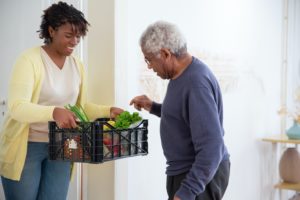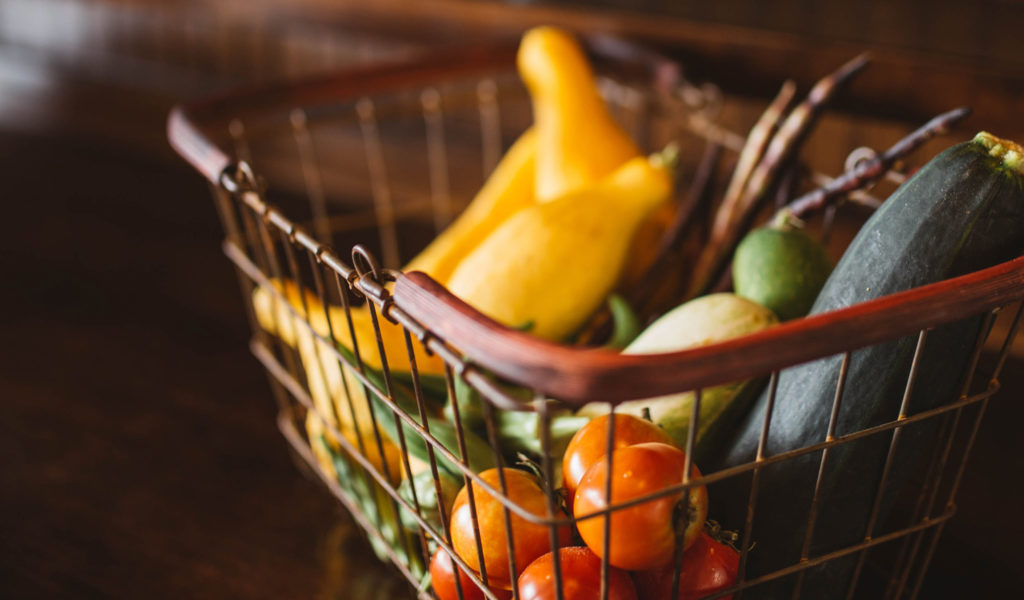Thanksgiving is a time of plenty in the typical American household, in which indulgence and overeating have long been part of the tradition. But there is a darker side to the abundance of this annual feast; namely, more than 200 million pounds of turkey that is tossed in the trash every Thanksgiving.

This is added to the fact that the US already tops the world’s food waste tables, throwing away 45% of household food over the course of any given year. This colossal consumer waste stream contributes to a staggering 22% of landfill space, the largest share of any solid waste stream.
Once left to rot in landfill, this food begins generating methane and other gases which lead directly to climate change.Additionally, in 2021, the United States will be home to a forecasted 50 million people living with food insecurity—meaning food donation at Thanksgiving has an important role to play.
Many not-for-profit organizations work year-round to combat hunger in America and would welcome your excess food at any time, but food donations at Thanksgiving are something many of us feel particularly compelled to make to help bring a little festive cheer to those less fortunate.
So, what are the best foodstuffs to donate at Thanksgiving? What’s the best practice for dealing with piles of turkey leftovers? And how can you find out where to donate food for Thanksgiving? We’ve got the answers here to make sure you can channel your resources and reduce your household waste in the most effective way this Thanksgiving.
What to Donate this Thanksgiving
While reducing the volume of surplus food generated is the first step in tackling the food waste problems outlined above, some excess food in the home is inevitable, and in this case the Environmental Protection Agency’s (EPA) Food Recovery Hierarchy prioritizes diverting this food to the hungry.

Researching and planning your Thanksgiving food donation to work out ahead of time the best way for you to get food to those in need without creating undue waste along the way is the best approach. Contrary to popular belief, donating a frozen turkey to a foodbank is not the way to go, for the simple reason that refrigerating and distributing turkeys safely isn’t an option for most food banks. Nor is it particularly cost effective as there are charities that bulk buy turkeys at much lower rates than an individual could.
Instead, the best foods to donate are non-perishable, and things like dried stuffing, instant potato, canned veggies, pumpkin are ideal. These can be gathered and distributed effectively in the weeks leading up to Thanksgiving and they generally have a much longer shelf life.
Making a Thanksgiving leftover food donation once your family has had their fill may feel like a generous way to cut down on your food waste, but this tends to be a less efficient and more wasteful strategy than buying the right amount of food for yourselves and donating non-perishable goods to a food bank or money to an anti-hunger charity.
Food banks and pantries won’t accept your wrapped up leftovers because of the difficulty in processing and distributing them. They will have a strategy and schedule for local provision, and it may be that money or time are more valuable to them than actual food—so plan your meal, but plan your Thanksgiving food donations just as carefully.
Where to Donate Food this Thanksgiving
The Feeding America Network of food banks will help you find the nearest Thanksgiving food donation location and provide hours and contact info. They list food banks across the country that will welcome your food donations throughout the year but, as a rule, always call ahead and check what is needed before heading down. FoodPantries.org is also a wonderful search engine for a more eclectic network of subsidized grocery stores, soup kitchens, and food pantries taking thanksgiving donations.

A third essential tool is the Food Rescue Locator, an interactive map of organizations throughout the country that rescue, clean, prepare, and distribute food donations to the hungry. Unlike the previous two networks, these rescue organizations collect food from private residences, restaurants and grocery stores and act as a link in the chain between individuals and soup kitchens or food banks serving meals.
If you are already reducing household waste considerably and would prefer not to go shopping for groceries simply to pass them on to a food bank, a great way to contribute is to organize a food drive in your local community to collect Thanksgiving food donations from other households.
Finally, if you’re still wondering where to donate for Thanksgiving, the most effective action is usually local action. This is the ethos behind not-for-profit Move For Hunger, whose website provides a digital toolkit and how-to guide with everything you need to set up your local Thanksgiving food drive.
Should I Donate?
Let’s take a moment to consider whether a Thanksgiving food donation is the best way to get a hot Thanksgiving meal to those that need it most. The average American family wastes $1,600 of food a year. That’s more than enough to feed a four-person family for a month. So perhaps as well as finding ways to get rid of excess food, taking a step back to focus on reducing food waste at home is an equally valid resolution to make this Thanksgiving. Or indeed, why not think about donating your time through volunteering?
Volunteering This Thanksgiving
If you decide to volunteer your time instead of donating Thanksgiving food, there are plenty of ways to be useful during the holidays and beyond. And in fact, many of the organizations you can find in the above food bank and soup kitchen networks will prefer volunteers over food donations. The best course of action is to search these networks with your postcode and contact your local organization to offer a hand.
 While there are many more organizations out there that you can join with, often the best place to start looking is close to home. Keep your eyes and ears open in your own community, check public notice boards, and online forums for ideas of where to donate food for Thanksgiving.
While there are many more organizations out there that you can join with, often the best place to start looking is close to home. Keep your eyes and ears open in your own community, check public notice boards, and online forums for ideas of where to donate food for Thanksgiving.
Ask yourself, is there a neighbor that would benefit from a seat at your table or a package of leftovers delivered fresh to their door? When it comes to Thanksgiving food leftovers, sharing them in your immediate community is probably the most kind and efficient way to use them—even better if you can factor it into your shopping ahead of time.
If none of the organizations or communities in your area require assistance, the best way to help may in fact be a financial donation. This is a facility frequently provided on not-for-profits’ websites, but here’s a list of national charities fighting hunger year round.
We all want to ensure the national holiday meal is available to everyone, no matter their circumstances. However, producing the least amount of food and sending as little as possible to landfill is the best way to reduce food poverty of all kinds—right now and in the future. For more information on food waste, plus resources and information on reducing other waste streams, visit the RTS blog.

